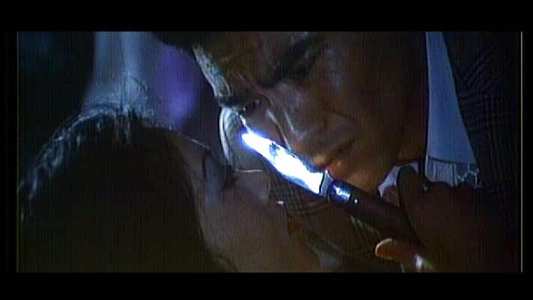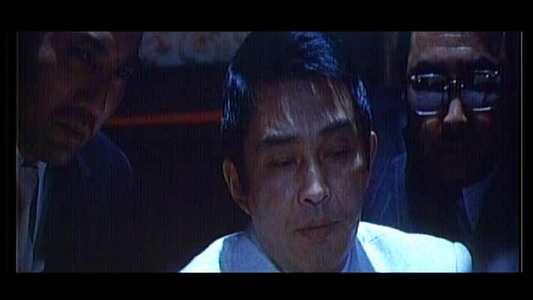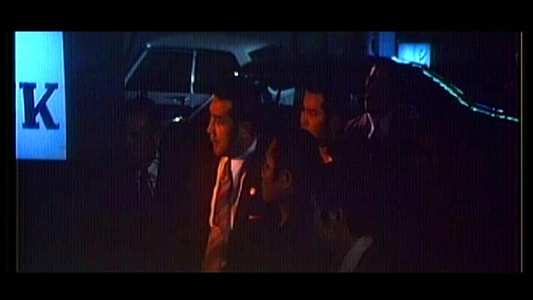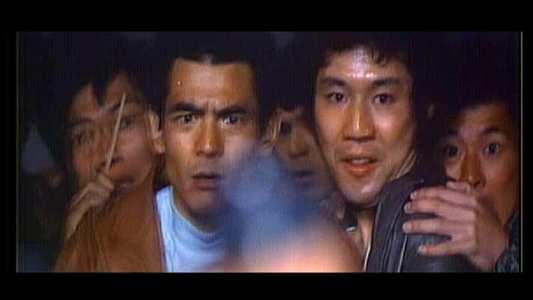Review of Street Mobster
Introduction
Director Kinji Fukasaku, better known for films such as, The Yakuza Papers, Tora! Tora! Tora!, Graveyard of Honor, The Geisha House and Battle Royale, shows us one of his 70s gangsters films thanks to Eureka Video..
Made in 1972, it was one of many films from Fukasaku and is his social comment on the hypocrisy of Japan in the 60s and 70s. Street Mobster is a no holds barred account of the Japan that Fukasaku grew up in. It`s a raw, brutal and shocking account of gangland and street violence at the time.

Video
Presented with what looks like a 2.20:1 anamorphic transfer, the quality isn`t very good. I suspect the source print was just too knackered to restore without considerable expense. There`s a fair amount of grain and dirt with the muted 1970s palette. Depite the low quality of the film, I have to say that it does lend an air of brutality to the proceedings. It`s raw and very much in your face adding realism to the story, so it works in favour of the film.

Audio
Just a mono Japanese Dolby Digital soundtrack. It sounds clear for the most part, but sometimes the screaming can sound a little harsh. The music in the background is reminiscent of a western with its solo trumpeting and harmonica signifying the rebellious central character. It doesn`t change much however and soon becomes a little tedious.

Features
Easy to navigate static menus with spaghetti western style music playing over the top. If you look closely you can just about see a film clip running in the background, but it`s almost transparent. Anyway, just a couple of extras here:
• Director`s Profile (static pages)- This seems to be the stock bio that`s been added to other Eureka/Fukasaku DVDs. The filmography runs from Furaibo Tantei: Akai Tan No Sangeki (1961) through to Battle Royale (2000). If you`ve already read it once on other Fukusaku DVDs, you`re not going to gleen anything new from here.
• Photo Gallery - Just 10 black & white stills taken from the film. Since there`s no likelihood of any other Street Mobster extra anywhere, a photo gallery isn`t a bad idea. But why just take stills from the film itself? There`s nothing really dramatic or stylish about it. It`s plain average.

Conclusion
This is only the second Fukasaku film I`ve seen, the first being The Geisha House. I couldn`t have asked for two more different films in terms of tone. Both however deal with moral aspects of Japanese society.
Street Mobster is an interesting film because the central character is simply amoral, there`s nothing redeeming about him whatsoever and he continues to be a thug all the way through. Kill or be killed is a way of life and he obides by his own code of conduct. Japanese honour however seems to prevail, but does little to save him in the end. Once you do get to the end of the film, you somehow know that something will happen to him. As tragic as it is, why should we care at all? His life is two a penny and is all too common on the streets where a short life expectancy is assured. It`s a turf war, and you reap what you sow.
This is exactly the kind of film that was typical of Fukasaku`s output in the 60s and 70s, social comment on post-war Japan. There`s no glamour in this gangster film, it shows the brutal and immoral side of poverty stricken street thugs that are wasters with no flicker of ambition or self-improvement other than greed itself.
Street Mobster is a good film to see if only for the actors` performances and the way the story manages to keep some momentum in the violence, where it keeps you from hitting the `off` button in the quieter scenes. Fukasaku`s style of directing and editing keeps you from getting bored too as we get right into the action. Sometimes we`re too involved with what happens onscreen. It`s not a great film, but worthy of a rental.
Your Opinions and Comments
Be the first to post a comment!